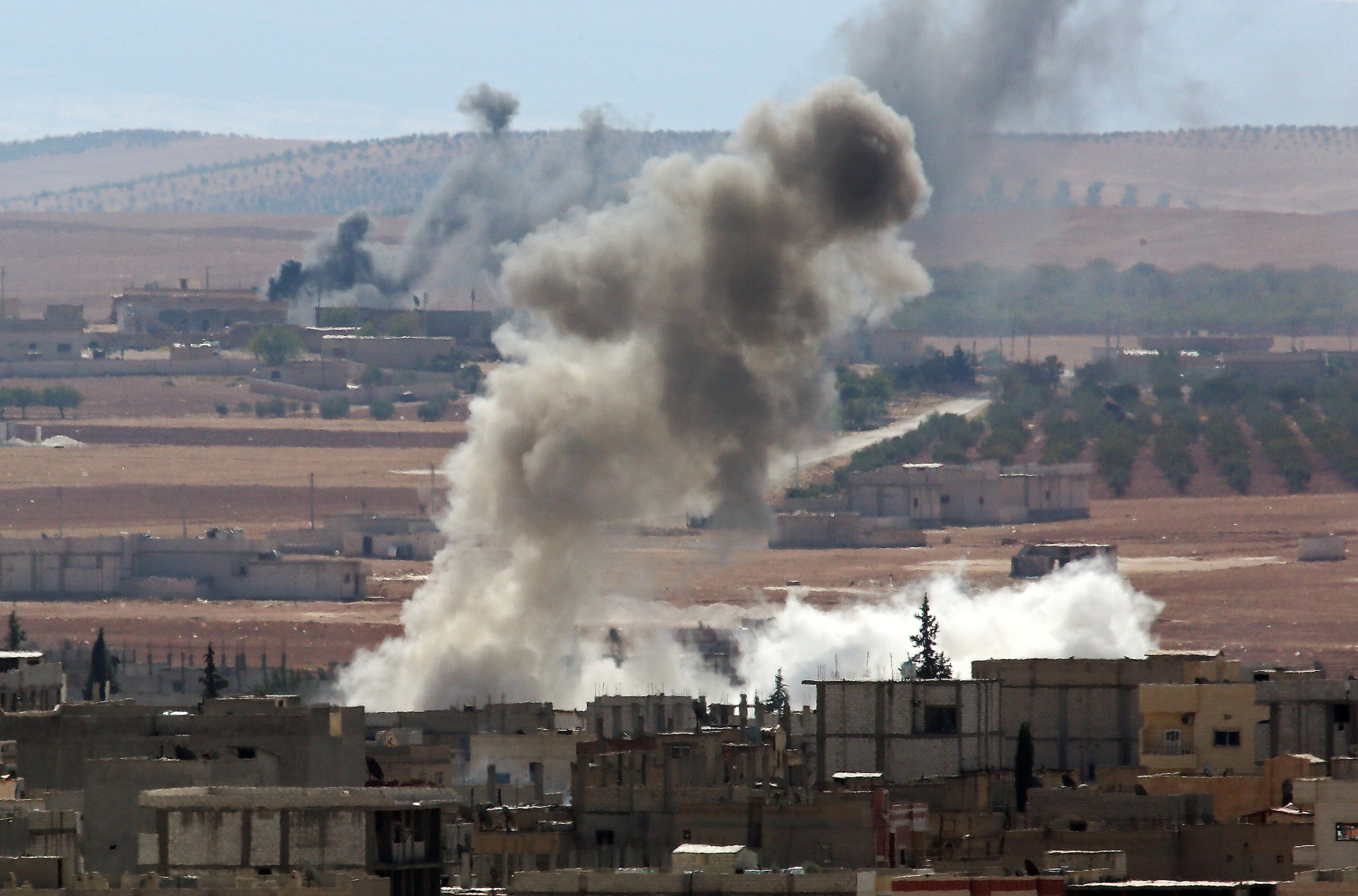
Once a United States military effort bogs down, as is now happening in the battle for the Syrian border town of Kobani, two things happen: Pentagon officials explain why what is happening should come as no surprise, and experts carp about how it is a surprise and could be done better.
Rear Admiral John Kirby, the Pentagon spokesman, explained Wednesday why the U.S. and its allies are basically powerless to stop the Islamic State of Iraq and Greater Syria (ISIS) from taking Kobani, which sits on Syria’s border with Turkey, and the 200,000 residents still living there. ISIS is now reported to control about a third of the town, half of whose population has fled to Turkey. “Airstrikes alone,” Kirby said, “are not going to . . . to save the town of Kobani.”
Them’s fighting words to air power advocates like David Deptula, a retired Air Force lieutenant general who ran the successful air campaign over Afghanistan in the opening months of the U.S. campaign there.
Deptula responded to Kirby’s comments in an overnight email from Australia:
The issue is not the limits of airpower, the issue is the ineffective use of airpower. According to [The Department of Defense’s] own website, two B-1 sorties can deliver more ordnance than did all the strikes from the aircraft carrier Bush over the last six weeks. Two F-15E sorties alone are enough to handle the current average daily task load of airstrikes in both Iraq and Syria.
Wise analysts understand that those blaming airpower for not ‘saving Kobani’ are confusing the limits of ‘airpower’ with the sub-optimization of its application. One can see [ISIS] tanks and artillery . . . in the open on TV, yet the coalition forces for ‘Operation Un-named Effort’ are not hitting them. Airpower can hit those targets and many others, but those in charge of its application are not—that’s the issue—not the limits of airpower.
The airstrikes to date have been very closely controlled, tactical in nature, and reflect the way they have been ‘metered’ in Afghanistan. The process that is being used to apply airpower is excessively long and overly controlled at too high a command level. The situation in Iraq/Syria with [ISIS] is not the same as Afghanistan with the Taliban. What we are witnessing now is a symptom of fighting the last war by a command that is dominated with ground warfare officers who have little experience with applying airpower in anything other than a ‘support’ role.
The situation requires a holistic, complete, air campaign, not simply a set of ‘targeted strikes.’ It requires a well planned and comprehensive air campaign focusing on achieving desired effects at the operational and strategic levels of war.
The coalition should establish 24/7 constant overwatch, with force application on every element of [ISIS] leadership, key infrastructure, forces and personnel—apply unrelenting pressure day and night on [ISIS] throughout Syria and Iraq. Airmen have the capacity, equipment, training, tactics, and knowledge needed for this fight, but airpower needs to be applied like a thunderstorm, and so far we’ve only witnessed a drizzle.
Fighting words, indeed.
More Must-Reads From TIME
- The 100 Most Influential People of 2024
- Coco Gauff Is Playing for Herself Now
- Scenes From Pro-Palestinian Encampments Across U.S. Universities
- 6 Compliments That Land Every Time
- If You're Dating Right Now , You're Brave: Column
- The AI That Could Heal a Divided Internet
- Fallout Is a Brilliant Model for the Future of Video Game Adaptations
- Want Weekly Recs on What to Watch, Read, and More? Sign Up for Worth Your Time
Contact us at letters@time.com